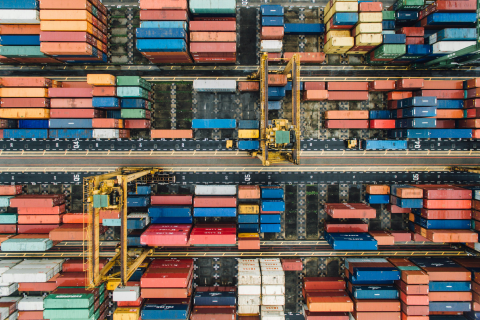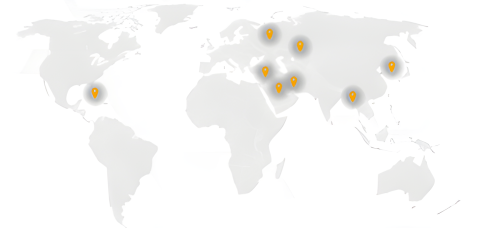
Export Control
Export control is essential for compliance in international trade and regulates the export of goods & technologies.
Export control is essential for compliance in international trade and regulates the export of goods & technologies.

Export control means that trade with certain goods, countries or persons is restricted or even prohibited (embargo) for security policy reasons. This means that it's not permitted to simply deliver any goods from one country to another without checking whether there are restrictions or even prohibitions. A violation of embargoes or restrictions is a serious compliance violation and can have grave consequences for companies and individuals. In this context, export control is of particular concern to companies who have their own production and supply chains.
In this article, we review the key fundamentals of export control:
The export control rules in force are set by national governments or international organizations. In Germany, for example, the Federal Office of Economics and Export Control (BAFA) monitors the export of certain goods and technologies.
The reasons and motivations for this can be diverse: For example, an embargo can be imposed on a country for political reasons, regardless of what is to be supplied.

However, it may also be that only the supply of certain goods to a country is prohibited - e.g. the supply of weapons to a crisis region. Sanctions against certain companies or individuals can also be a reason. Or the supply of certain products and technologies is restricted because they could be "dual-used" for military purposes.
Export control can thus apply on different levels:
There are also legal gray areas or cases that are not immediately clear.
For example, while the export of weapons or ammunition for a tank is obviously subject to export control, there are many goods that could be used for both civilian and military purposes.
These are called "dual use products". These products could, for example - depending on its specification - be installed in a passenger vehicle or in a submarine. For this reason, export control also targets the use of the products, because it is often the intended use that determines whether the export of a product is controlled.
Here, the word "product" refers not only to tangible goods, but also to intangible goods such as software or technology transfer in general. This includes consulting, training and technical information sent by e-mail or offered for download. Products that have been classified as "dual use" are on export control lists and may only be exported with a license. In Germany, this is done by the AL number, while in the USA the ECCN number is often found on invoices or delivery bills.
Sometimes products will also be subject to export control without being explicitly on one of the control lists. This may be the case if they could be used for military or nuclear purposes.
It is essential to take these restrictions of use into account, especially in politically problematic regions or with critical customers such as the military. Therefore, so-called "end-use declarations" are often required as a precautionary measure, in which companies or customers must confirm the ultimate intended use. However, such confirmations are not normally required for non-critical transactions.
Get a free demo account now and let's talk about your needs in a web meeting. We'll show you how to successfully strengthen compliance in your company through employee training.
Depending on the severity of the violation, prison sentences may be imposed on the individuals involved. Particularly in the case of deliveries of tools, machines, IT equipment or know-how, there's always a chance that "dual use" goods could be involved. So it is crucial to find these needles in the haystack.
If export control regulations are violated, companies can be investigated, which can lead to serious legal consequences. Fines and sanctions can be imposed, which can of course cause enormous damage to a company's reputation and sales.
In order to ensure reliable export control, it is crucial that companies are fully informed about current regulations and apply for an export license if necessary. Especially if their products are subject to these regulations. With such a license, it is possible to trade with controlled goods, countries or persons.
To qualify for a license all requirements must be met and the specified conditions adhered to. It is strongly recommended that you contact relevant authorities and experts to ensure compliance with export control regulations and minimize potential risks.
Hands-on examples:
For critical products and countries, checklists as well as one's own gut feeling (or common sense) are important decision-making aids. If there are uncertainties, employees should rather ask too many questions than too few.
To ensure that your departments are well sensitized and empowered, a regular compliance training for export control is a good idea. Ideally, you supplement an e-learning with intranet content, contacts from your compliance team, and links to key resources.
Would you like to see our compliance e-learnings for yourself? Simply request a free demo access.